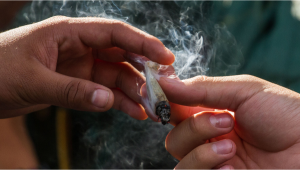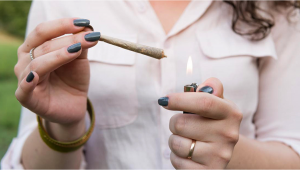Cannabis Smokers Don’t Really Fit ‘Stoner’ Stereotypes

A recent survey conducted by an online marijuana marketplace found no lazy unemployed burnouts among its customers. Dutchie, an Oregon-based cannabis startup, looked at 5,000 smokers who registered on their platform, and a majority of those were young and hard-working people with an average salary of more than 50,000 a year.
As the main reason for consuming the substance, the respondents cited the need to relax and calm down after the stresses of a busy life. Findings like this shatter the common stereotype of a lethargic stoner and encourage us to embrace the new reality where medical and recreational cannabis is not a threat but rather a normal part of life.
A Clear Shift in Trends
People surveyed by Dutchie may not be really representative of the general population of marijuana smokers either in the US or elsewhere. Most of them are probably computer-savvy, love their phone apps, and are used to getting anything they want to be delivered to their doorstep. As such, the sample is skewed towards the young and upwardly mobile big city dwellers.
According to brothers Ross and Zach Lipson, co-founders of Dutchie, nearly half of the people who buy weed through their platform are between the ages of 21 and 34. Besides, 54% of them have college diplomas, and more than half are women. There are also professional and even Olympic athletes among them.
And, certainly, if you look hard enough, especially among those who still buy their weed on the streets, you’ll find some stoner types as well — those with low-paying jobs and hazy career prospects. However, it is clear that cannabis is becoming a part of life for a more productive and successful crowd, too.
Young People in the UK May Help Promote Medical Cannabis
Stoner jokes stop being funny when the stereotypes imposed by them are in the way of such important developments as medical cannabis. In the UK, the therapeutic use of the substance was legalized in 2018, but the stigma endures, and the patients feel it when they try to get access to their medicine. Many of them are still getting it on the black market.
That is the reason why DrugScience, an independent advisory organization, has recently launched a campaign to educate the British youth about the medical benefits of cannabis.
This age group has the least objections to the full legalization of the drug. Two-thirds of those aged 18–24 think the adult use of cannabis should be legal, and more than a third don’t see any major harm in the substance. This makes young people an especially effective target for educational efforts. They can spread the word among their peers and family members and help them learn more about the benefits of medical cannabis and the latest research on the subject.










Comments